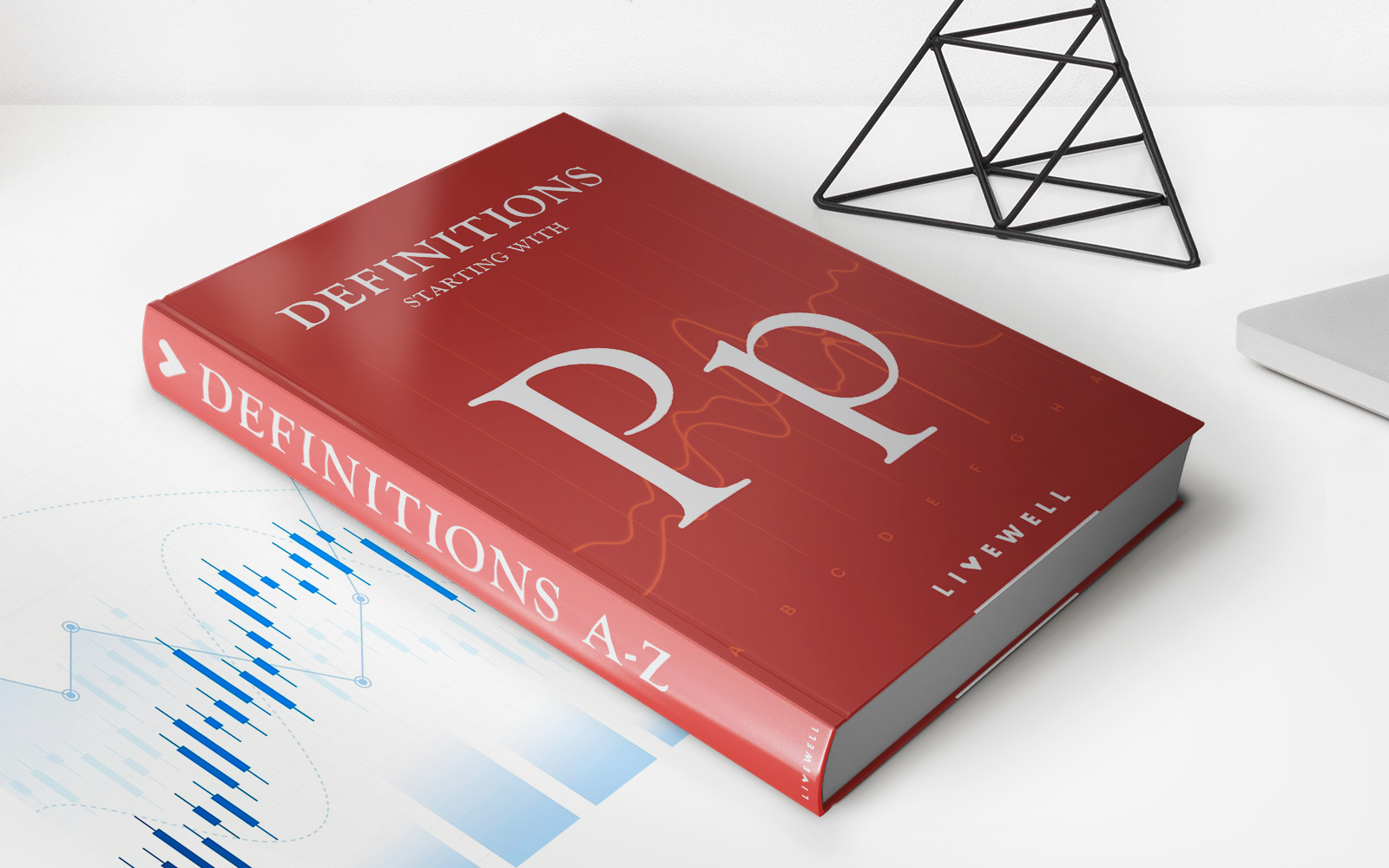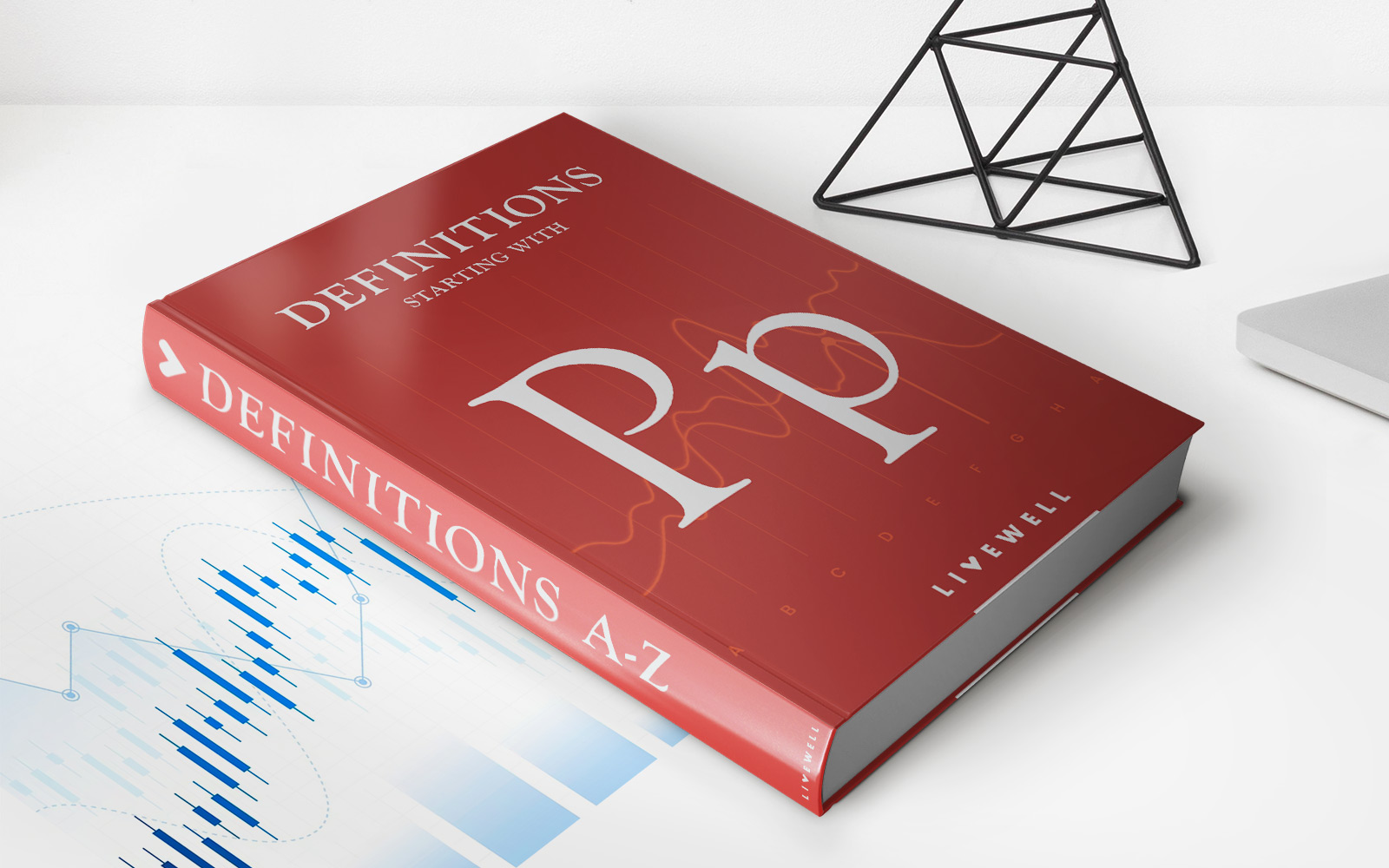Home>Finance>How Much Does An Accountant Charge For Small Business


Finance
How Much Does An Accountant Charge For Small Business
Published: November 25, 2023
Find out the average cost of hiring an accountant for small businesses. Get a comprehensive understanding of finance and budgeting for your company.
(Many of the links in this article redirect to a specific reviewed product. Your purchase of these products through affiliate links helps to generate commission for LiveWell, at no extra cost. Learn more)
Table of Contents
Introduction
When starting or running a small business, hiring an accountant can be a crucial step towards ensuring financial stability and success. However, one common concern for small business owners is the cost of accounting services. Understanding how much accountants charge for their services is essential for budgeting and making informed decisions.
The fees charged by accountants can vary depending on several factors, including the complexity of the business’s financial situation, the level of expertise required, and the location of the accountant. In this article, we will explore the different factors that can affect accountant fees, as well as provide tips on finding an affordable accountant for your small business.
By gaining insight into the various fee structures and additional costs involved, small business owners can make informed decisions when selecting an accountant that meets their needs and budget constraints.
Understanding the factors that can affect accountant fees is the first step to budgeting effectively for your small business. Whether you are just starting out or have an established business, having a clear understanding of the cost of accounting services can help you make better financial decisions and allocate resources wisely.
Let’s dive into the various factors that can influence accountant fees for small businesses.
Factors Affecting Accountant Fees
Several factors play a role in determining the fees charged by accountants for their services. Familiarizing yourself with these factors will help you understand why accountants charge different rates and allow you to assess which services are necessary for your small business. Here are the key factors that can influence accountant fees:
- Experience and Expertise: Accountants with more experience and specialized expertise generally command higher fees. A certified public accountant (CPA) is often more expensive than a general accountant due to their advanced qualifications and knowledge of tax laws.
- Complexity of Financial Situation: The complexity of your small business’s financial situation can directly impact the fees charged by an accountant. If your business has multiple revenue streams, complex tax requirements, or requires financial analysis and forecasting, accountants may charge higher fees to address these complexities.
- Location: Accountant fees can vary based on the location of your small business. In metropolitan areas or cities with a higher cost of living, accountants tend to charge higher rates to compensate for their overhead expenses.
- Scope of Services: The specific services you require from an accountant will also influence the fees charged. Services such as bookkeeping, tax preparation, payroll processing, financial statements preparation, and business consulting may be priced differently based on the scope and frequency of engagement.
- Size of Your Business: The size of your small business, including revenue and number of employees, can impact the fees charged by accountants. Businesses with higher revenue and more extensive financial data may require more time and resources, resulting in higher fees.
It is important to consider these factors when assessing accountant fees for your small business. While understanding the value that an experienced accountant brings to your financial management is vital, it’s equally important to find a balance between the services you need and their associated costs.
Next, we’ll explore the different fee structures that accountants commonly use when charging for their services.
Hourly Rates
Hourly rates are a common fee structure used by accountants to charge for their services. With this approach, the accountant determines an hourly rate and bills the client based on the hours spent working on their financial tasks or projects. The hourly rate can vary depending on the factors we discussed earlier, such as experience, expertise, and location.
When considering hourly rates, it’s important to have a clear understanding of how much time the accountant expects to spend on your specific financial needs. This can be challenging, especially if you’re new to running a business or unsure about the tasks involved. However, having open communication and setting expectations with your accountant can help in managing costs effectively.
Hourly rates can range anywhere from $50 to $300 per hour, depending on the factors mentioned earlier. Keep in mind that higher rates may not necessarily guarantee better quality or expertise. It’s crucial to evaluate the accountant’s qualifications and experience, as well as the services they offer, to ensure they align with your business needs.
Accountants often track the time spent on each task and provide detailed invoices that breakdown the hours worked. This level of transparency enables small business owners to review the services provided and address any concerns or questions.
It’s worth noting that hourly rates may work well for businesses with sporadic or unpredictable financial needs. However, if your business requires ongoing and regular accounting support, it might be more cost-effective to explore alternative fee structures, such as project-based rates or retainer fee arrangements.
In the next section, we’ll delve into project-based rates and how they can be beneficial for specific accounting needs.
Project-Based Rates
Another fee structure commonly used by accountants is the project-based rate. With this approach, accountants charge a fixed fee for a specific project or set of tasks, rather than billing by the hour. Project-based rates are often used for well-defined and one-time accounting projects, such as tax preparation, financial statement audits, or business consulting.
Unlike hourly rates, project-based rates provide more certainty and transparency in terms of cost. Small business owners can agree on a fixed fee upfront, allowing them to budget and plan accordingly. This fee structure is particularly beneficial when the scope of the project is clearly defined, making it easier for both parties to agree on the deliverables and timeline.
The project-based rate can vary depending on the complexity and time required to complete the project. Accountants will consider factors such as the size of your business, the intricacy of your financial situation, and the type of project when determining the fee.
It’s important to note that if there are any changes or additional requirements during the course of the project that were not initially agreed upon, the accountant may need to adjust the fee accordingly. Therefore, maintaining open communication and discussing any changes or modifications with your accountant is crucial to avoid unexpected cost increases.
Project-based rates can be advantageous for small businesses with well-defined and specific accounting needs. They offer a fixed cost and enable business owners to plan their finances accordingly. However, it’s essential to thoroughly understand the scope of the project and ensure that all necessary tasks are included in the agreed-upon fee.
Next, we will explore another fee structure called retainer fees, which can be beneficial for businesses requiring ongoing accounting support.
Retainer Fee Structures
Retainer fee structures are commonly used when small businesses require ongoing accounting support and services. With a retainer fee arrangement, the business pays a monthly or quarterly fixed fee to retain the services of an accountant for a specific period. This fee covers a predetermined set of services and can provide businesses with consistent and continuous financial management.
Retainer fees are often used by small businesses that need regular bookkeeping, tax compliance, payroll processing, and financial statement preparation. By establishing a retainer agreement, business owners can access professional accounting expertise on an ongoing basis without the need to negotiate individual project-based or hourly rates for each task.
Retainer fees vary depending on the level of service provided and the complexity of the business’s financial needs. Factors such as the size of the business, the volume of transactions, and the range of services required can influence the retainer fee amount.
Retainer fee structures offer several advantages for small businesses. Firstly, it provides a predictable and fixed cost, allowing businesses to budget for their accounting expenses. Secondly, it ensures that critical financial tasks are consistently and accurately managed, reducing the risk of errors or non-compliance. Thirdly, it fosters a long-term relationship with the accountant, who becomes familiar with the business and its unique financial needs.
However, it’s important for business owners to review the terms and conditions of the retainer agreement carefully. Clarify the specific services included in the retainer fee, as well as any limitations or exclusions. Additionally, discuss the process for handling additional projects or tasks outside the retainer agreement to prevent any surprises or misunderstandings.
Now that we have discussed various fee structures, let’s explore additional costs to consider when working with an accountant for your small business.
Additional Costs
When hiring an accountant for your small business, it’s essential to be aware of any additional costs that may arise throughout the engagement. While the main fee structure (hourly rates, project-based rates, or retainer fees) covers the core accounting services, there are a few potential additional costs to consider:
- Software and Technology: Some accountants may require the use of specific software or technology to efficiently manage your finances. There may be associated costs for purchasing or subscribing to these tools. Clarify with your accountant if there are any additional expenses required for software licenses or subscriptions.
- Out-of-Pocket Expenses: In certain circumstances, accountants may incur out-of-pocket expenses directly related to your business, such as travel expenses or fees for third-party services. These expenses might be billed separately or included as part of the overall fee. It’s important to discuss and clarify these potential costs upfront.
- Tax Filing Fees: Accountants often assist with filing tax returns on behalf of small businesses. Depending on the complexity and scale of your tax filings, there may be additional fees for tax preparation and filing. It’s crucial to understand and discuss how taxes will be handled and any associated costs involved.
- Audit or Review Engagements: If your small business requires an audit or review of financial statements, these services may have additional costs associated with them. The complexity and regulatory requirements of the engagement will determine the associated fees. Ensure that you are aware of the potential costs for these specialized services.
- Consulting or Advisory Services: In addition to core accounting services, some accountants offer consulting or advisory services to help small businesses make informed financial decisions. These services may come at an additional cost outside of the main fee structure. Discuss the availability and cost of these consulting services if they align with your business needs.
It’s essential to have open and transparent communication with your accountant regarding any potential additional costs. Before engaging their services, ask for a detailed breakdown of the fee structure and discuss any possible additional expenses. This will help you have a complete understanding of the total cost and avoid any unexpected financial surprises.
Now that we have covered the main fee structures and additional costs, let’s discuss some tips for negotiating accountant fees and finding an affordable accounting solution for your small business.
Negotiating Accountant Fees
When it comes to accountant fees, it’s important to remember that they are not set in stone. Small business owners can often negotiate fees to ensure a fair and affordable arrangement. Here are some tips for negotiating accountant fees:
- Shop around and compare: Obtain quotes from multiple accountants and compare their services and fees. This will give you a better understanding of the average market rates and enable you to negotiate more effectively.
- Highlight your business’s value: Demonstrate the significance and potential of your business to the accountant. This could include highlighting growth prospects, future financial needs, or unique aspects that make your business stand out. By showcasing the value of your business, you may be able to negotiate a more favorable fee.
- Consider a long-term commitment: If you anticipate requiring ongoing accounting services, discuss the possibility of a longer-term engagement with the accountant. They may be willing to offer a discounted rate or reduce fees in exchange for a committed long-term relationship.
- Bundled services: Explore the option of bundling multiple services together to negotiate a comprehensive package at a discounted rate. This can help consolidate your accounting needs and potentially lower overall costs.
- Negotiate payment terms: While negotiating fees, also discuss flexible payment terms that align with your cash flow needs. For example, you can explore monthly or quarterly payment plans rather than a lump sum upfront.
- Consider alternative fee structures: Discuss different fee structures with the accountant. They may be open to exploring alternatives such as project-based rates or retainer fee arrangements that could be more cost-effective for your small business.
Remember, negotiation is a two-way process. Be prepared to compromise and find a mutually beneficial solution. It’s important to maintain respectful and open communication with the accountant throughout the negotiation process. By demonstrating professionalism and a willingness to establish a fair fee arrangement, you increase the chances of reaching a favorable agreement.
Now that we have explored tips for negotiating accountant fees, let’s move on to discuss some strategies for finding an affordable accountant for your small business.
Tips for Finding an Affordable Accountant
While it’s important to find an accountant who meets your financial needs, it’s also essential to consider affordability. Here are some tips for finding an affordable accountant for your small business:
- Assess your business’s needs: Determine the specific accounting services your business requires. This will help you prioritize which services are essential and avoid paying for unnecessary services.
- Consider the size of the accounting firm: Smaller accounting firms or independent accountants may offer more competitive rates compared to larger firms. They might have lower overhead costs and provide personalized, cost-effective solutions for small businesses.
- Look for industry experience: Find an accountant with knowledge and experience in your industry. They will be familiar with the unique financial aspects and compliance requirements, allowing them to work efficiently and potentially reduce costs.
- Ask for referrals: Seek recommendations from other small business owners in your network. They can provide insights into accountants who offer competitive rates and excellent services.
- Utilize online platforms: Explore online platforms and directories that connect small businesses with accountants. These platforms often provide information on accountants’ qualifications, services offered, and client reviews, helping you make an informed decision.
- Consider virtual accounting services: Virtual accounting services allow you to work with accountants remotely, often resulting in cost savings. Virtual accountants can provide the same level of expertise and services but at potentially lower rates due to reduced overhead expenses.
- Request fee estimates and compare: Obtain fee estimates from multiple accountants and compare them. Assess the range of services included in the fees to ensure you’re comparing apples to apples. Remember, the cheapest option may not always be the best, so consider the overall value provided.
- Negotiate fees: As mentioned earlier, don’t be afraid to negotiate fees with accountants. Discuss your budget constraints and explore possibilities for a mutually beneficial fee arrangement.
By considering these tips and thoroughly evaluating your options, you can find an affordable accountant who meets your small business’s financial needs without compromising on quality.
Finally, let’s summarize the main points discussed in this article.
Conclusion
Hiring an accountant for your small business is a crucial step in ensuring financial stability and success. Understanding the factors that can affect accountant fees, such as experience, complexity of financial situation, location, scope of services, and business size, is essential for budgeting and decision-making.
Accountants commonly use fee structures such as hourly rates, project-based rates, and retainer fee arrangements. Hourly rates provide flexibility but may not be cost-effective for ongoing accounting needs. Project-based rates offer fixed fees for specific projects, while retainer fee structures provide ongoing support at a consistent cost.
In addition to the main fee structure, there may be additional costs to consider, including software and technology expenses, out-of-pocket expenses, tax filing fees, and specialized services. It’s important to discuss these potential costs upfront and clarify any uncertainties.
Negotiating accountant fees can be advantageous for small business owners. By shopping around, highlighting your business’s value, and exploring alternative fee structures, you can potentially secure a more affordable arrangement. It’s important to maintain open communication and mutually beneficial negotiation to reach a fair agreement.
When searching for an affordable accountant, consider assessing your business’s needs, exploring smaller accounting firms, seeking referrals, utilizing online platforms, and considering virtual accounting services. Request fee estimates, compare them, and prioritize value over cost alone.
Finding an accountant who meets your financial needs while being affordable is achievable. By understanding the factors affecting accountant fees, negotiating effectively, and exploring your options, you can find a financial partner who will help guide your small business towards success.
Remember, while affordability is important, it’s crucial to prioritize the expertise and quality of the accountant’s services. Consider your business’s long-term goals and the value that an experienced accountant can provide in making informed financial decisions.














